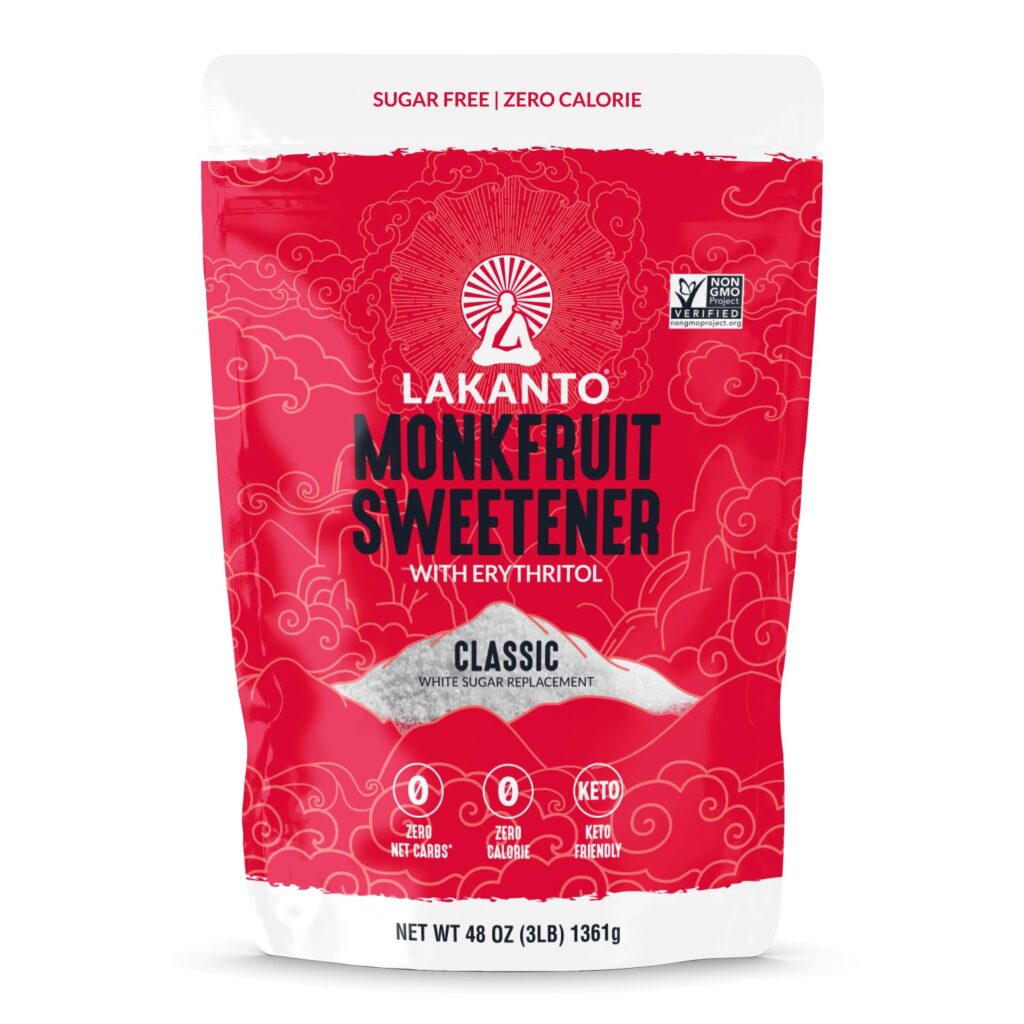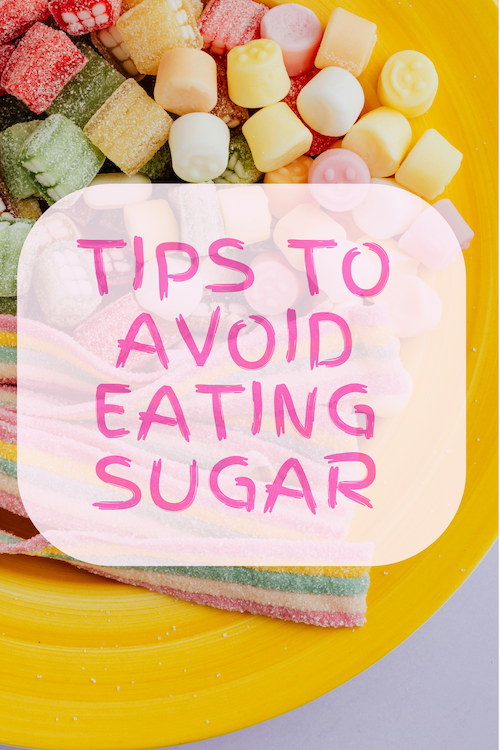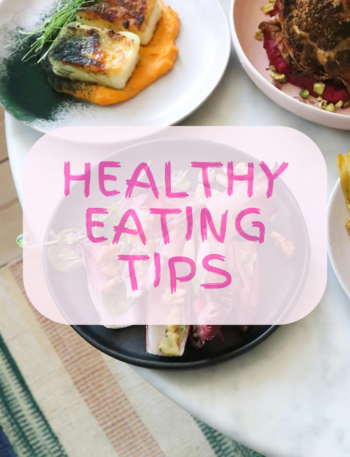There are several reasons for keeping track of how much sugar you are ingesting, if you care about reaching or maintaining a good overall healthy life. We bring you these tips to avoid eating sugar as a way to help you achieve just that.
Make sure to keep these notes close to you and to follow these advices as they have been proven to work for several people that implement them in their daily routines.
Let’s go…
Table of content
- What is sugar?
- Why should we avoid sugar?
- Become a food label expert
- Make foods and drinks yourself
- Swap treats with complex carbs
- Save sweets for real treats
- Add protein and healthy fats
- Don’t stop too suddenly
- Stick to well balanced eating habits
- Benefits of reducing sugar
- How about artificial sweeteners?
- Better sugar alternatives
- When to contact a health care professional?
- Any sweetener recommendation?
- Related posts and recipes
What is sugar?
This is the most basic question to make before going into more details about avoiding to eat sugar; we need to understand what it is and why should we avoid it.
Sugar is the generic name for sweet-tasting, soluble carbohydrates, many of which are used in food. Simple sugars, also called monosaccharides, include glucose, fructose, and galactose.
Compound sugars, also called disaccharides or double sugars, are molecules made of two bonded monosaccharides; common examples are sucrose (glucose + fructose), lactose (glucose + galactose), and maltose (two molecules of glucose). White sugar is a refined form of sucrose. In the body, compound sugars are hydrolysed into simple sugars.
Now let’s see why should we avoid sugar…
Why should we avoid sugar?
There is no realistic way to 100% avoid ingesting sugar, which is completely fine because we need it in order to properly function. However, it is with the excess of sugar ingestion that comes the problems.
Excessive consumption of free sugar is associated with obesity, diabetes, cardiovascular disease, cancer and tooth decay. In 2015, the World Health Organization strongly recommended that adults and children reduce their intake of free sugars to less than 10% of their total energy intake, and encouraged a reduction to below 5%.
The main excess in sugar that we should avoid is the added ones, which are sugars, syrups, or nectars added to foods and beverages in the following ways:
- Used in food processing or preparation (such as sodas, cookies, cakes, and pastries)
- Added personally (examples: adding sugar to coffee or ordering a boba drink with a 100% sweetness level)
We surely want to avoid the consequences of eating sugar in excess, so next up are the actual tips on how to actually accomplish this.
Become a food label expert
Specifically for the sugar topic, review the “added sugar” section contained in the nutrition label for food that comes in a package. This shows the total amount of added sugars per serving. Look to buy food and beverages with zero or little added sugars.
Added sugars may be listed by several different names, including:
- Dextrose
- Fructose
- Glucose
- Sucrose
- Maltose
- Honey
- Molasses
- Corn syrup
- Malt syrup
- High fructose corn syrup
- Sugar/cane sugar
- Fruit juice concentrates
- Corn sweetener
If the added sugar ingredient is higher on the list, there is a higher amount of added sugar in the food item. Try to limit your intake of these foods.
Make foods and drinks yourself
Buying certain foods and drinks in the grocery store can be convenient for meals making. However, you can control how much sugar you use and even eliminate it sometimes by making foods and drinks yourself.
For example, instead of using ready-made pasta sauce or condiments, you can get the base ingredients and choose whether you want to use any sugary additives in moderation.
Swap treats with complex carbs
Cookies, pastries, muffins, white bread, and other treats made with refined flour may be dense with added sugar. This added sugar can affect blood sugar levels, setting up a cycle of grabbing a donut or muffin for energy that doesn’t last, Brittany Kohn, RD, a New York City nutritionist, said.
Instead, try whole-grain varieties of these foods. Whole grains are converted to sugar during digestion. However, because they’re complex carbs rather than simple, they’re absorbed slower and provide steady energy.
Save sweets for real treats
It’s okay to treat yourself to a sweet item every so often. For example, treat yourself to an ice cream on a Saturday afternoon. Think of it as a real treat for sticking to a healthier diet throughout the week.
You can also look to reduce the size of your soda or order a drink with a 25% sweetness level.
This would also help deal with the anxiety that could come with trying to limit the sugar in your daily life in a safe manner.
Add protein and healthy fats
Consuming more healthy fats (nuts, olive oil, avocado, dairy) and lean protein (eggs, turkey, and steak) is a good strategy when you’re trying to quit sugar.
Both can keep you feeling satiated and energized, preventing the blood sugar rise and fall that comes with sugar. This long term feeling of fullness will likely help you not feel the need for sugary foods and keep you from ingesting them unnecessarily.
Don’t stop too suddenly
Stopping sugar suddenly might lead to withdrawal symptoms like headaches. “It’s better to ease yourself off it slowly by taking one step at a time, so your body has time to adjust,” it is said in the linked article.
Another reason not to be in a rush is that slower changes tend to last, especially when it comes to quitting sugar. If you typically start your day with two spoonfuls of sugar in your tea or coffee, cut back to one spoonful for a week, and then to zero a week later.
Stick to well balanced eating habits
You should always aim for a well balanced meal plan while eating fewer items with added sugar.
If you have any nutrition questions or concerns, you can check with a registered dietitian to help you develop specific nutrition goals that help you keep a healthy lifestyle.
Benefits of reducing sugar
While consuming sugar in excess has so many drawbacks, cutting down on them has the potential to do just the opposite:
- Decrease the likelihood of dental problems, such as cavities.
- Help with weight management and blood sugar regulation.
- Reduce heart disease, obesity, and type 2 diabetes risks.
How about artificial sweeteners?
Swapping out sugar in favor of an artificial sweetener like aspartame or saccharin can sometimes be helpful for lowering added sugar intake. However, they may not always be the best option.
Artificial sweeteners provide the sweet taste without calories, so when you consume these products, hunger isn’t satisfied, leading you to crave more afterward. This effect might have to do with the sweetness intensity in these products: artificial sweeteners are many times sweeter than natural sugar.
Better sugar alternatives
The types of sugar you don’t have to quit are found naturally in foods, such as fructose in fruit and lactose in milk products. Fruit, for instance, contains an amount of sugar that is in better proportion with the amount of fiber and other nutrients in it.
Look through your spice rack to satisfy a sweet tooth without resorting to refined options. Cinnamon or vanilla extract added to coffee, cereal, or baked goods offer a sweet taste without sugar’s side effects, and zero calories, too.
Other sweet spices and herbs to add to beverages and meals include chicory, ginger, nutmeg, and cardamom. Citrus zest also adds a fruity, refreshing sweetness.
When to contact a health care professional?
Talk with a healthcare provider or registered dietitian if you have questions or concerns about your sugar ingestion or are at risk of developing diabetes.
They can offer more individual guidance about limiting sugar and other food or drink alternatives you can try.
Any sweetener recommendation?
We would prefer if you obtain your sugar from real food, as they will contain just the right amount and type of sugar that you need.
However, if would still like a recommendation to replace regular sugar, here is one option that many people consider a good one for replacement.

Lakanto Classic Monk Fruit Sweetener with Erythritol – White Sugar Substitute
White sugar substitute that’s perfect for cookies, coffee, desserts, and other sweet, sugar-free treats. Tastes, bakes, and cooks like sugar.
Affiliate Disclosure
This post may contain affiliate links, i.e., when you buy any product using these links, we get commissions. However, it doesn’t cost you anything extra. If you do purchase any product using the given links, we thank you in advance!
Related posts and recipes
We have a large number of posts and recipes where we make reference to healthy eating in general because of the reasons that you saw above with tips to avoid eating sugar.
However, here are only a few of our posts and recipes where healthy eating is referenced:
- Healthy eating tips
- Easy air fryer broccoli
- Mediterranean veggie scrambled eggs
- Why are veggies good for you?
- Why use olive oil?
You can explore our recipes and get some more ideas about healthy eating in general.
If you have any questions or comments, make sure to reach out to us or leave us a comment down below.
Thank you for reading us!



